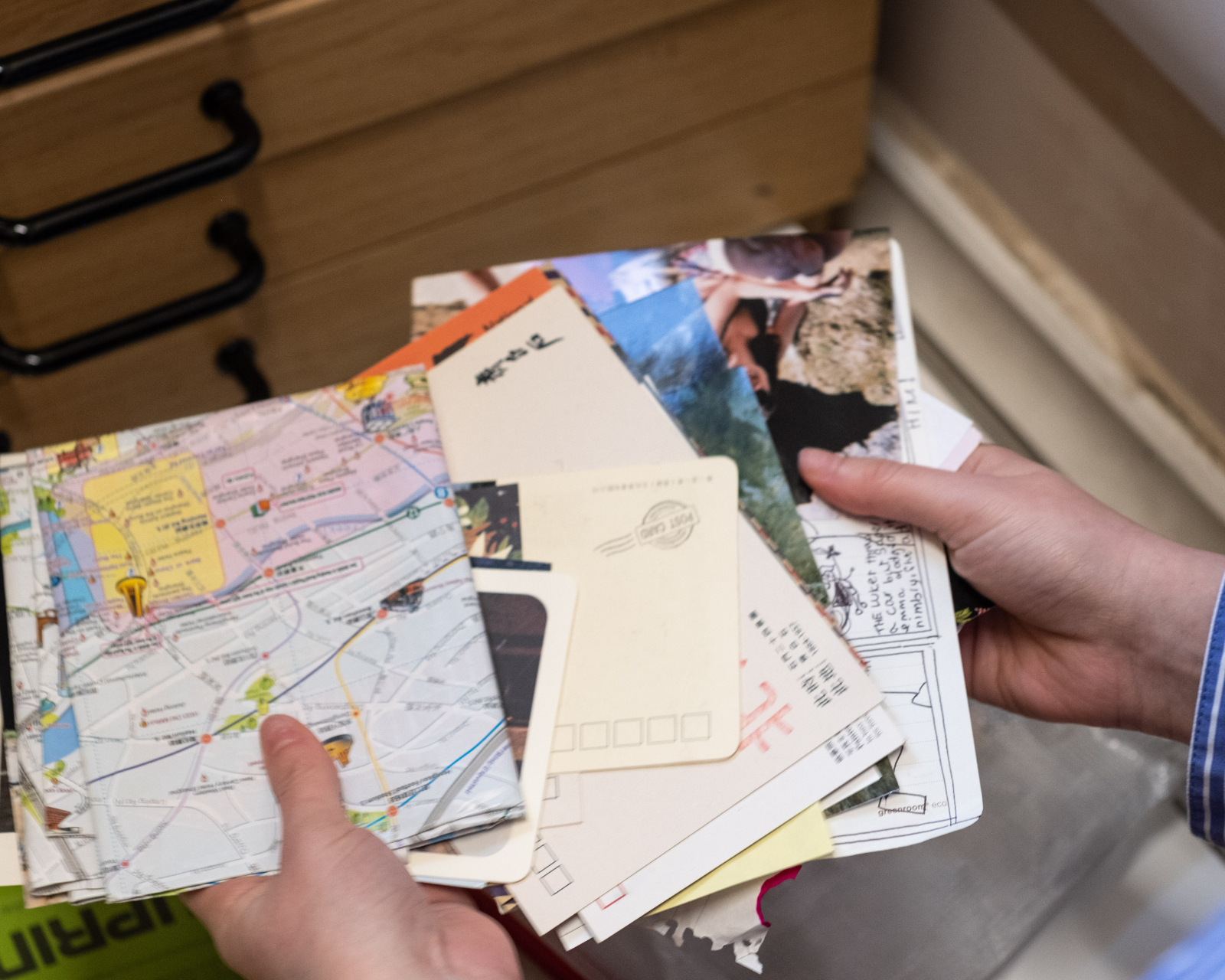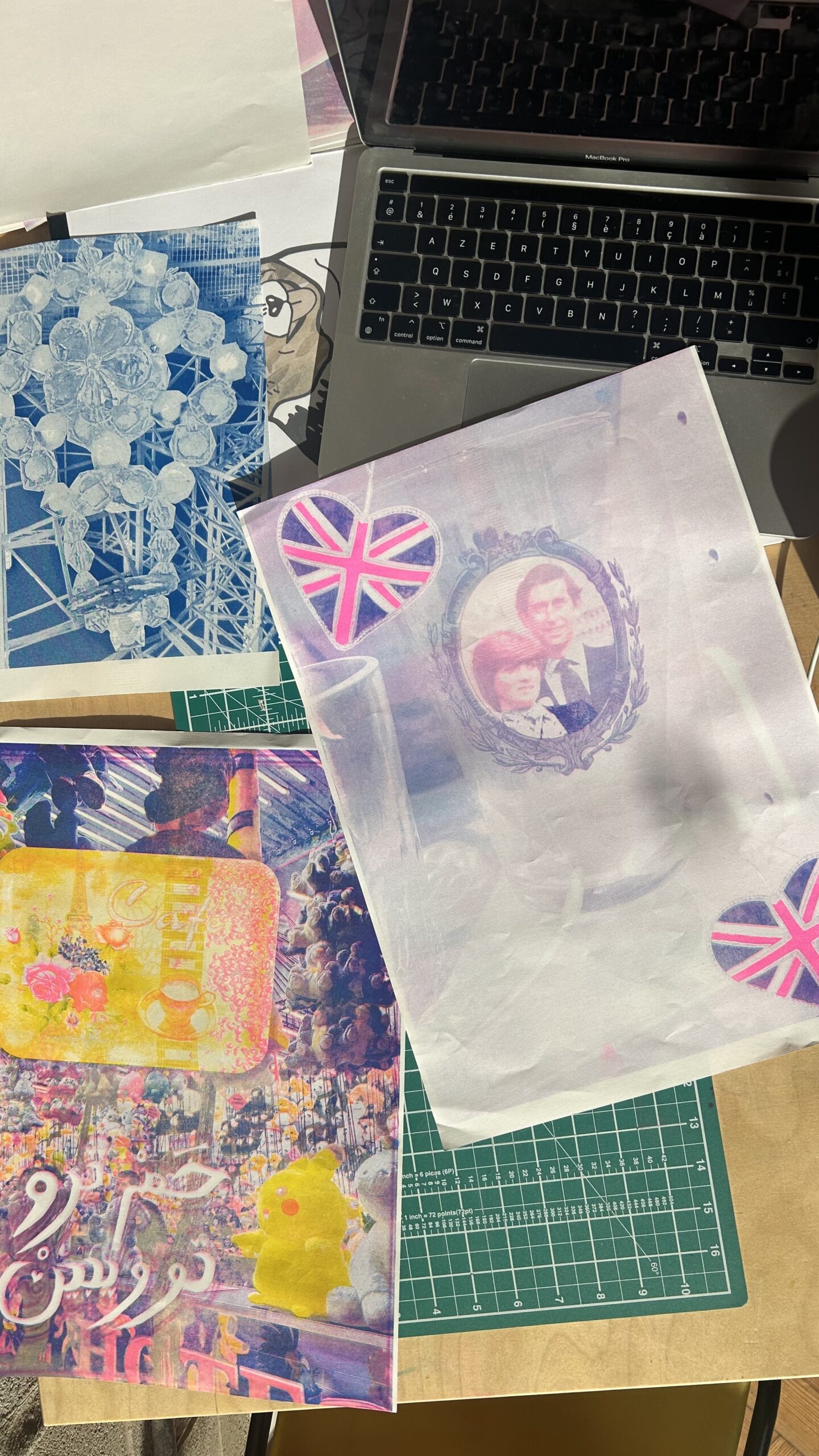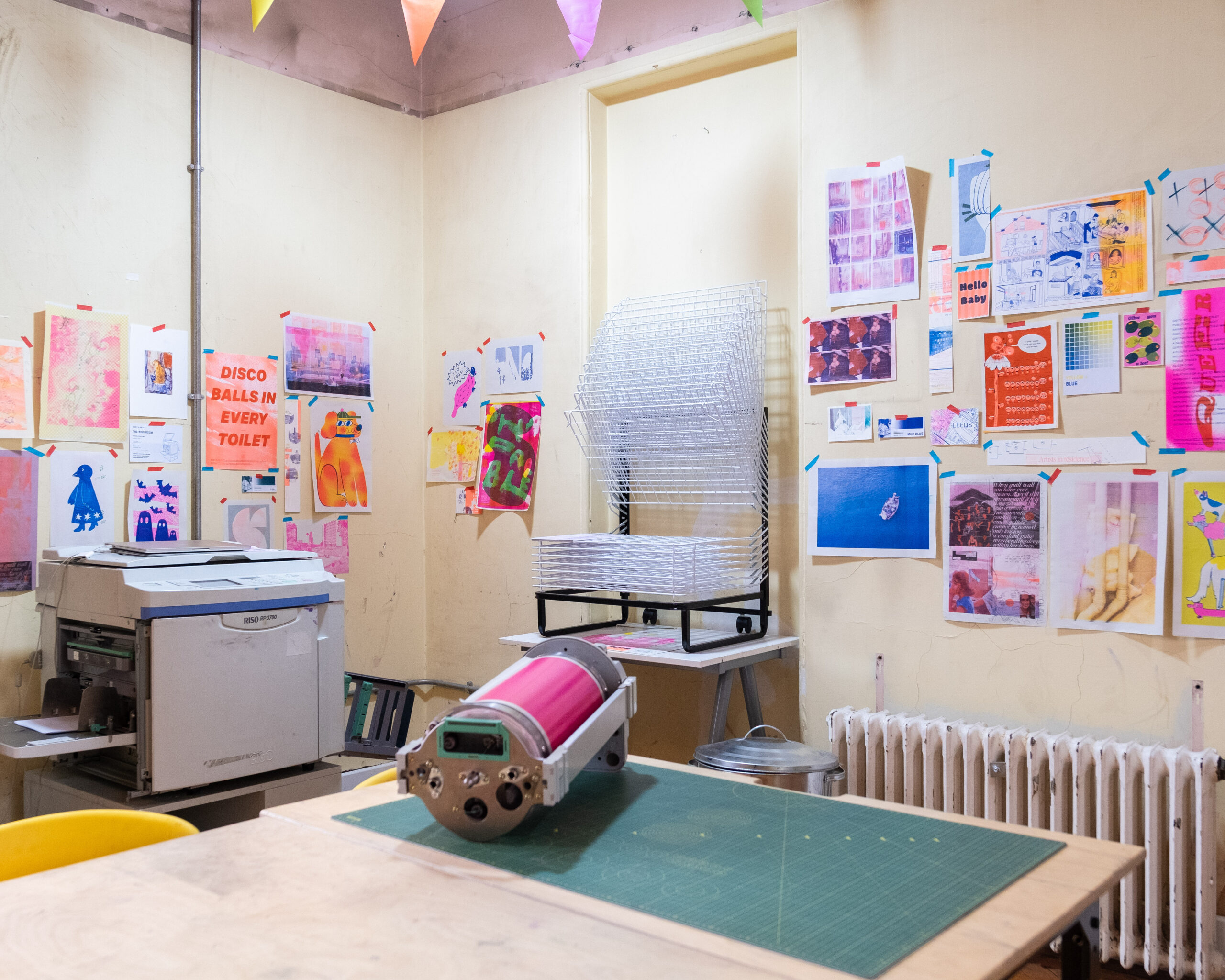Emma Bentley-Fox is a familiar face here at East Street Arts – she’s one of our programme producers, a studio holder, and is midway through her six-month residency at Convention House. We caught up to have a chat with her ahead of her solo show, Confessions of a Party Mom which opens at Hyde Park Book Club on Tuesday 18 April.
We caught up with Emma Bentley-Fox ahead of her solo show, Confessions of a Party Mom which opens at Hyde Park Book Club on Tuesday 18 April.
Emma Bentley-Fox is an artist, photographer, and facilitator living and working in Leeds. Her work spans disciplines such as photography, visual art, social practice and organising. Her work takes a careful approach, informed by experiences of illness, and exploring things like archiving, gender, the body, trauma, intimacy and nostalgia. Confessions of a Party Mom will offer a glimpse at an evolving image-based analogue photographic archive.
When you start something, do you know what the end product will look like?
Not really, no. I think I’m a bit more process driven, so a process of thinking as I make. Sometimes I’ll have quite a specific idea in my mind of what my output will be but quite often this will then change. For this exhibition [Confessions of a Party Mom] the outcomes have been somewhat similar to what I imagined. It’s always a little bit of a process of fine-tuning through the making of the work, or then preparing for the exhibition.
What do you think the threads are that tie your work together?
Themes around community and communities are a significant thread throughout my work. Whether that’s communities that I belong to and am exploring, or whether it’s collaborations that I’m part of within communities. And then also when working with other communities, like on the Neighbourhood Plan for Mabgate, Lincoln Green and Burmantofts. I see my work as a Producer at East Street Arts as an extension of my own practice, rather than a separate form of it.
Through working with communities – particularly through Party Mom Society – creating environments that can centre femme/queer or gender non-conforming groups, part of my practice has developed to be around space making, and what ‘safe’ spaces can mean in terms of nightlife and the networks that we build as a part of this.
Photography is also a large part of my practice, especially in the capturing of a moment. As someone whose practice is very much centred around community and space-making, image-making sits quite nicely as a means of documenting these activities and spaces, alongside producing events.
Sometimes it’s hard to find a common thread, but someone once said to me, ‘You’re the common thread’ which makes a lot more sense of it.
What do you feel influenced your decision to become who you are, as an artist?
When I moved to Leeds in 2014 I quickly found the drag and alternative/queer scene in Leeds, and groups like Ageofthe, who championed gender non-conforming experiences. I enjoy working collaboratively and sometimes struggle having to sit in a room trying to make things, so during this time I started producing parties. It took a long time for me to realise this was a part of my practice, and a lot of my work is finding things that are fun.
My practice is quite political, but I would like to think in quite a positive way, especially in relation to disabled and queer bodies where, much of the time, the act of enjoyment can in itself be a radical act and giving both the space for this to happen but also document this. I want my work to feel completely honest, as I think personal work resonates with me heavily, and I think no matter how specific something is it can be powerful as an experience for others.
What does creativity mean to you?
Working on the Neighbourhood Plan has really broadened my perspective on what creativity can do, and what it can be. If you boil it down, I guess creativity can be something as simple as being playful, and not being output driven. Experimenting, trying something different, and not being afraid to make mistakes. And that’s what’s great about some of the work with the Neighbourhood Plan – that you can take quite a dry and weighty topic and find ways to talk through it in creative ways through blue-sky thinking and engaging with the community around us about what they want to see.
Do you think it’s important to have a studio space? And how did the Convention House Residency help you develop your work?
Previously I didn’t have a studio space, so having somewhere to come that can be a dedicated place for making work allows me to try and separate it from my home life, allowing for those two different head-spaces. It’s been valuable to be part of a community of people making things here, like having Sable Radio next door, even just in the sense of having conversations and developing relationships and networks. Convention House and the facilities there are essential to me as an artist: it’s heated (I can’t work in the cold for long periods) and has lift access for my studio.
My residency at Convention House has allowed me to spend time with Matt (Matt Collins, Technician), but also use tools and machines that otherwise I wouldn’t have access to, and develop these ideas freely, so going from using laser cutters to then starting to learn 3D printing software as part of an almost collaborative process with him. For the most part these sorts of resources are hard to access, especially in ways which allow you to develop ideas and make mistakes.
Does your practice, or particular works, come from your experiences?
Definitely. Health has been such a big thing for me in the last few years. When I was at university, and just after graduating, we were producing four or five parties a year through Party Mom Society, plus I was going out a lot more on top of that. I was skint most of the time, and my mental health wasn’t great. The images from that time are very joyful, because there were moments of release but they feel a little like a form of escapism. I find this work and these images interesting because they’re so wrapped up in the contradictions of the time, of feeling like you’re on top of the world but at the same time not really knowing how you feel, or what your direction is. Sometimes I look at my current work and find that it can lack the same punch, compared to the liveliness of my previous work, but there is also a realisation that this reflects me being in a better place, and knowing myself better.
If you’re in Leeds make sure not to miss Emma’s show at Hyde Park Book Club from 18 April to 18 June.
Find Emma:
Website: emmabfox.co.uk | Instagram: @emmabfox










